Best 2016 Drivers, Part 1: The AmateurGolf.com Review
3/14/2016 | by Bradley Weixel of AmateurGolf.com
see also: Equipment Reviews
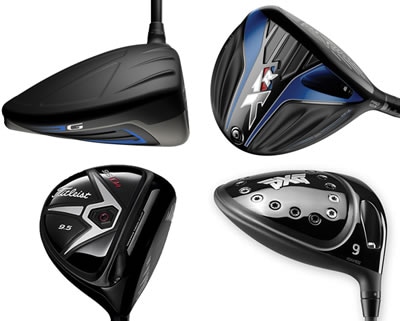
It's safe to say that 2016 is once again "The Year of the Driver" -- if you can't find something you like, you may want to start hitting 3-wood off the tee
The latest crop of drivers from mainstream manufacturers, and upstarts like PXG, have taken adjustability, shaft options, and finishes to new levels. It's safe to say that 2016, is, once again "The Year of the Driver." In the first of a two part series, I'll take a look at some of the heavy hitters - most of them Golf Digest Hot Stix Gold award winners.
Callaway XR 16 and XR 16
Pro
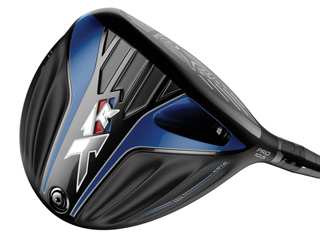 |
Callaway Golf is making major noise with the release of the XR 16 and XR 16 Pro drivers. With help from the folks at Boeing’s aerospace division, the XR 16 and XR 16 Pro are engineered for speed. The improved aerodynamics of the new design assist in increasing clubhead speeds and overall distance. However, you will notice the absence of adjustability features in both versions of the XR 16. These features were exchanged for the increased speed and aerodynamics of the club. Center of gravity has not been overlooked though, the XR 16 has a more rearward CG to enhance forgiveness and ball flight for golfers with slower swing speeds. Conversely, the XR 16 Pro has a more forward CG to promote less spin and greater distance for higher swing speed players. Therefore, if you find yourself on the elusive search for more distance, the Callaway XR 16 or XR 16 Pro could be the club for you.
Titleist 915 D2, D3, and D4
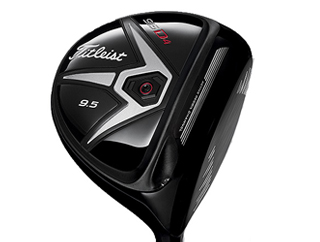 |
Titleist is known for their consistency and reliability with golfers around the world. The 915 driver is no exception. Three models are offered to accommodate golfers of all ability levels and swing speeds. The D2 is the most forgiving of the three clubs and suites golfers with slower swing speeds. A 460 CC head helps to accommodate miss hits and the positioning of the center of gravity promotes a higher ball flight and draw bias. In addition to the playability factors, the D2 looks fantastic. The D3 version of the 915 has a slightly smaller 440CC head and a center of gravity more toward the face. These features produce a lower and more penetrating ball flight. However, you will need to have a higher than average swing speed to achieve these results and be willing to trade some forgiveness for increased ball speed. The third version of the 915 is the custom order D4. Although this is the version in the bag of various PGA Tour players, it might not be a viable option for the average golfer. The D4 does produce lower spin numbers on well struck shots, but requires a very high swing speed to be successful. The Titleist 915 is not the longest of the newly available drivers on the market today. However, it is one of the most consistent and performs well across the board in all tests.
TaylorMade M1 and M2
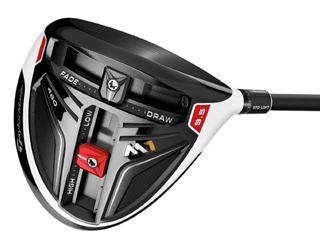 |
It’s safe to say TaylorMade has hit a homerun with their new M1 driver. The addition of a second sliding weight track to manipulate center of gravity was a great success. Players can now move their CG in the same style as their draw/fade bias. These features along with the various loft settings make the M1 one of the most adjustable drivers on the market today. Still, with all this adjustability, the M1 does not perform as well as other products in terms of forgiveness. Additionally, TaylorMade offers two size choices, a 430 CC and 460 CC head. However, the 430 CC head has not gained nearly as much notoriety as the 460 and requires on center hits to produce quality numbers. The M2 was released shortly after the M1, but that is no surprise given TaylorMade’s history. The two sliding weight tracks are noticeably missing from the M2 and it offers much less adjustability compared to its predecessor. M2 is no dud though, higher balls speeds, more forgiveness, and better overall results were achieved during many tests. AmateurGolf.com equipment panelist Donnie Baucom put both the M1 and M2 through the ringer and his Trackman numbers were consistently better with the M2. Bottom line, you need to hit both versions before making your decision.
Cobra King LTD and LTD Pro
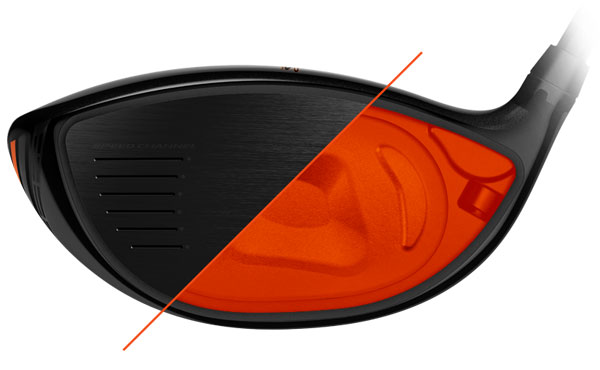 |
The king has arrived! Cobra Golf’s newest driver offerings come in the form of the King LTD and LTD Pro. Both models feature a carbon fiber crown, along with a titanium body. The engineering efforts in the King driver series assist in moving weight lower in the clubhead, below the horizontal axis. Due to this weight shift, Cobra is able to increase forgiveness and launch angle, while decreasing spin at the same time. There are minimal differences between the LTD and LTD Pro, mainly loft and draw/fade settings achieved through the adjustable sleeve. The LTD offers lofts ranging from 9-12 degrees and three draw settings, while the LTD Pro offers lofts ranging from 7-10 degrees and three fade settings. Compared to other drivers the King series has a lack of adjustability. However, the LTD and LTD Pro both excel in forgiveness and lowered spin rates when tested. Additionally, both drivers feature a sleek all black appearance and great sound. This driver truly could be the king of the pack.
Ping G, G LS Tec, and G SF Tec
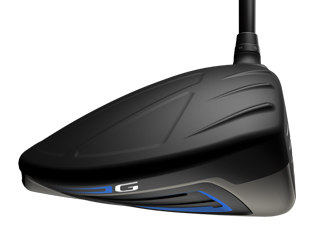 |
Ping has done it again. The G series drivers prove to be some of the best available equipment in today’s market. Three versions of the new Ping G driver allow golfers of every skill level to find a G that fits their game. The LS Tec features low and reward center of gravity, but the least reward in the G family. Additionally, the LS features a slightly open face angle. This particular model will most likely fit the higher skilled player. However, every model of the G series is exceptionally forgiving, low spinning, and performs consistently well on miss hits. The G version of the trio will be slightly more forgiving than the LS, but conversely produce slightly high spin numbers and less distance. For golfers wanting more game improvement features, Ping offers the SF Tec version of the G. The SF Tec features the most rearward CG of the group and promotes a draw bias to help with the dreaded slice. The G series does lack in adjustability and loft choices, but makes up for this in superior performance. When considering a new driver, the Ping G series must not be overlooked.
PXG 0811
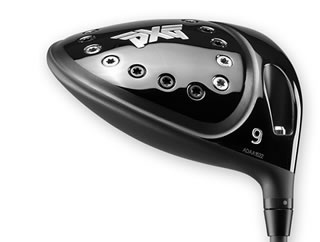
|
The 0811 from PXG Golf has to win the adjustability award hands down. Sixteen removable screws offer endless combinations of draw/fade bias and center of gravity settings. Many adjustable drivers promise to provide varying settings, but fail to deliver in performance. Additionally, after adjusting the settings on many drivers the changes are virtually unnoticeable. The 0811 does not fall into this category. Small and large changes are not only possible, but noticeable. Simply stated, moving the weights makes a big difference. Some tests do acknowledge too much spin on occasion and ball speeds are not always at optimal levels. All said, if you can afford a $700 driver, the PXG 0811 is a good choice.
Callaway Big Bertha Alpha 816 DBD
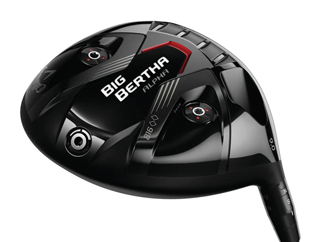 |
In addition to the XR 16 and XR 16 Pro, Callaway is also offering the Big Bertha Alpha 816 DBD. The Alpha features a carbon composite crown and weight distribution that is located lower and more toward the face. However, adjustability modifications can be made to accommodate different ball flights. This can be achieved through Callaway’s “Dual Distance Chambers” and “Gravity Core”. Draw and fade bias settings can be achieved by placing more weight towards the heel or toe of the club. Furthermore, the gravity core can be positioned heavy side up to increase ball speed on above center hits, or down to reduce spin. Despite all of this adjustability, golfers with 100 mph swing speeds or higher had the greatest results. So, if you have a higher than average swing speed and can hit the center of the face with some regularity, you should definitely consider the Big Bertha Alpha 816 DBD.
Nike Vapor Flex 440
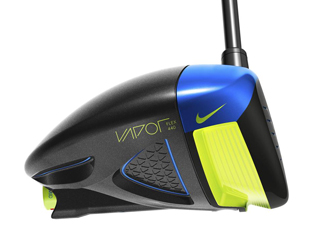 |
When considering Nike’s various drivers, the Vapor Flex 440 proves to be the cream of the crop. Featuring Nike’s proprietary carbon fiber reinforced RZN material and the RZN Tube for adjustability. The tube can be used to position weight either forward or rearward to influence launch angle, spin rate, and forgiveness. Some test indicate inconsistent results depending on varying swing speeds. However, the superb feel of this driver is mentioned by everyone. With all the new drivers on the market, it can be tough to find the right one for your particular swing. If you find yourself looking for a driver with adjustability, forgiveness, and great feel, give the Vapor Flex 440 a try.
Most Popular Articles
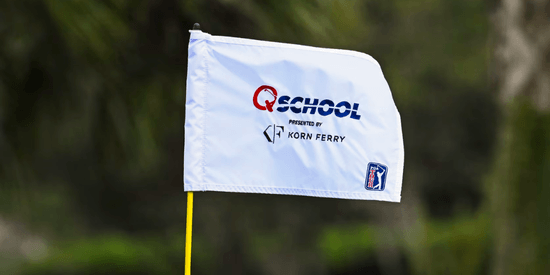
2025 PGA TOUR Q-School Guide: Sites, Scores, and Who Advanced
Dec 5, 2025Second Stage is complete and Final Stage awaits at Sawgrass — follow every Q-School leaderboard and the players still chasing
2025 LPGA TOUR Q-Series: Final Qualifying Stage FINAL SCORING
Dec 8, 2025Helen Briem earns medalist honors, 31 players headed to the LPGA next year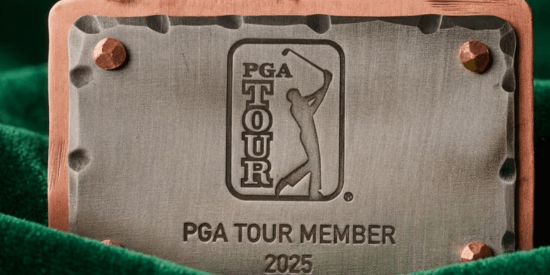
2025 PGA TOUR Q-School Final Stage: Ewart Leads Five New TOUR Card Winners
Dec 14, 2025A.J. Ewart topped Final Stage at TPC Sawgrass, leading five players who secured PGA TOUR membership for 2026.
Australian Open at Royal Melbourne: Preview, amateur bios, and how to watch
Nov 30, 2025Rory McIlroy headlines one of the championship's top fields in years - at least four amateurs will have their chance at gloryInside Gil Hanse’s Restoration of Baltusrol’s Upper Course: A Return to Tillinghast’s
Dec 11, 2025Renowned architect Gil Hanse reveals how he brought Baltusrol’s Upper Course back to life by honoring A.W. Tillinghast’s originalLoading latest news...
